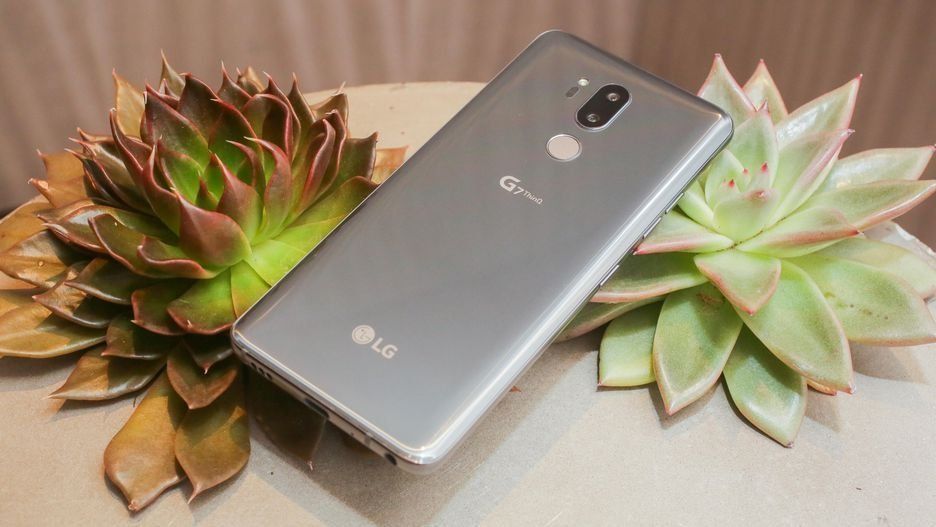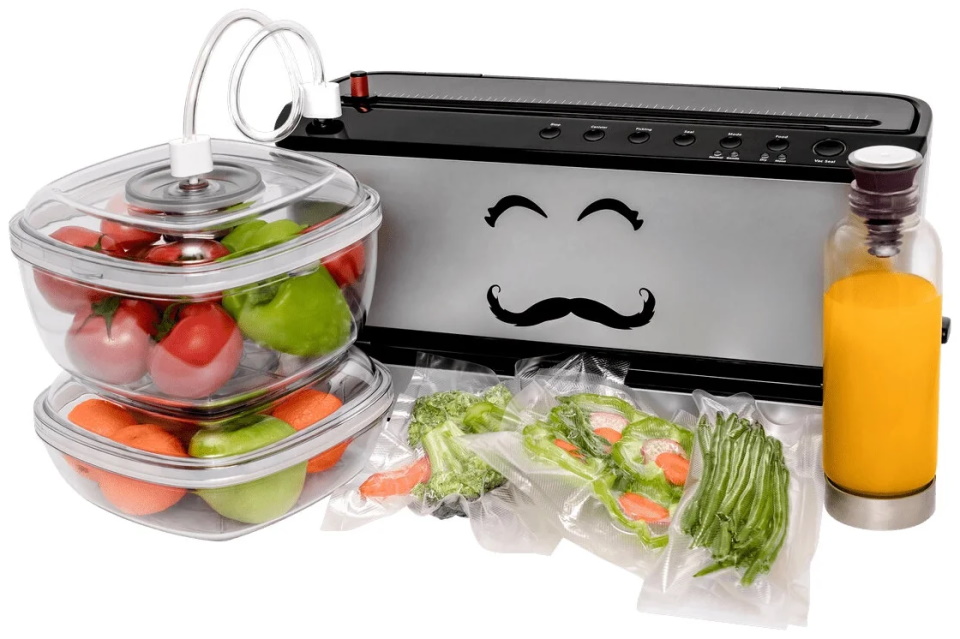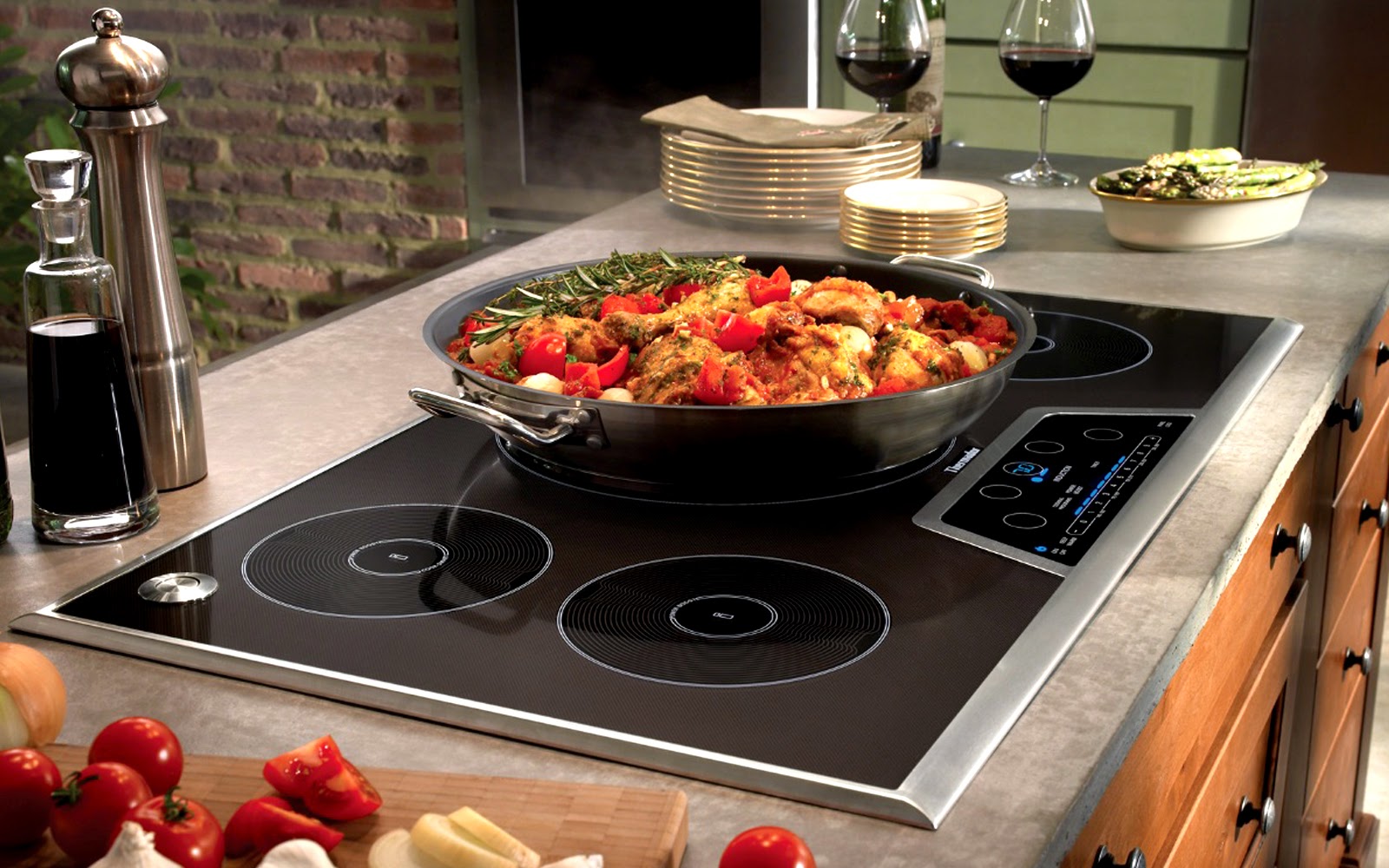Ranking of the best barcode scanners for 2022
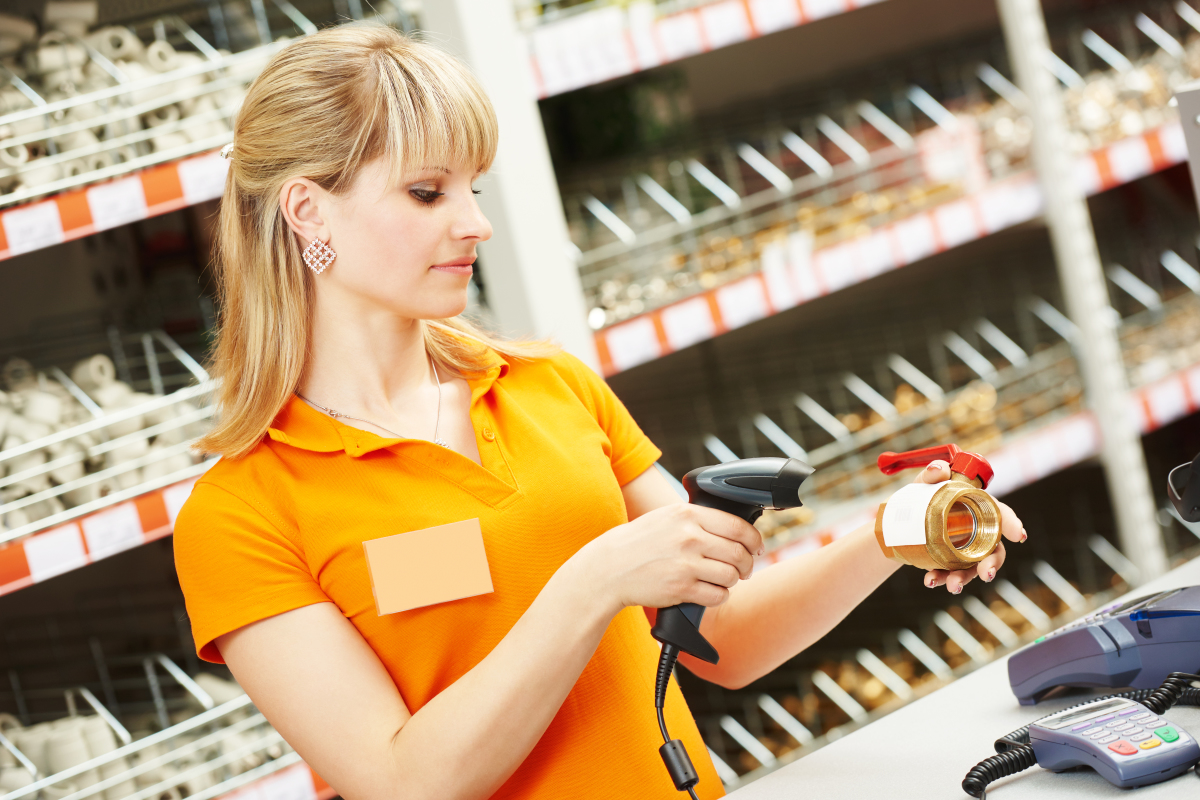
A barcode scanner is a type of cash register equipment. Significantly facilitates the process of work of sellers-cashiers, speeds up customer service. And due to the fact that the cost of such equipment is becoming more affordable, it can be used even in small retail outlets.
Content
How a barcode scanner works
A scanner is a device that reads information encrypted in a barcode on a product's packaging. For example, when used at the checkout, it saves the seller from having to enter data manually. As a result, the receipt reflects the name, cost, amount of the discount. If we talk about stationary models placed on supermarket racks, then such scanners are intended for buyers. In this case, it is enough to bring the goods to the device and find out the exact cost. This is necessary in order to avoid misunderstandings when paying at the checkout. Since often the employees of the trading floor do not have time to change the price tags.

Types of barcodes
A one-dimensional code is a marking in the form of stripes and numbers placed on a white background. It is found on clothing labels, food packaging, household appliances boxes. As a rule, a 1D (one-dimensional) code contains the minimum amount of information.
Two-dimensional contains more information (sometimes up to several printed sheets), so it is often used for products with a large number of characteristics. Depicted as a square, it is read not only by scanners, but also by smartphones (for example, a QR code), using a special application.
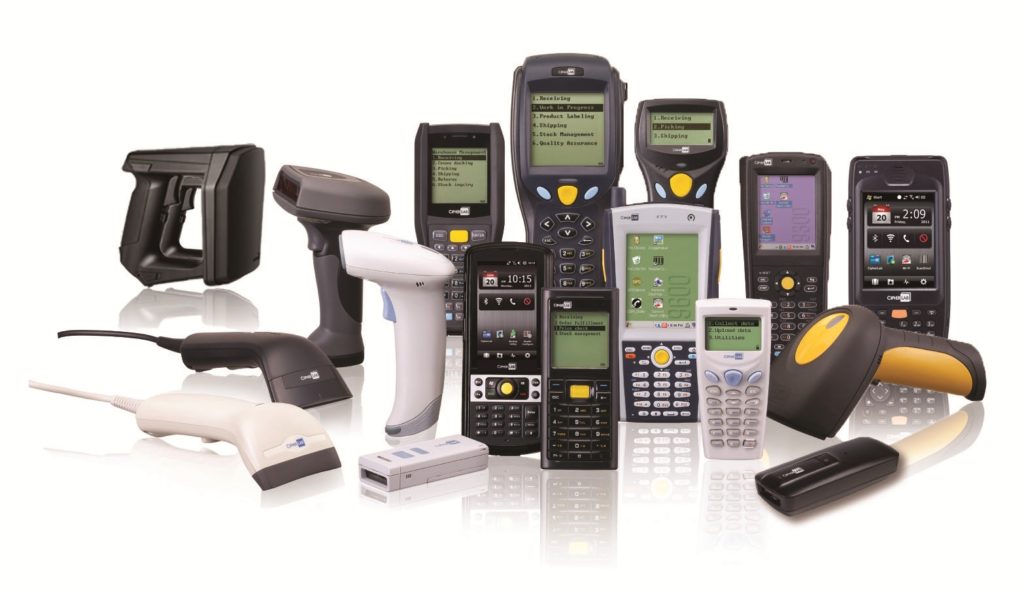
What are scanners
Modern scanners are divided into groups, depending on the type of connection, reading element and barcode.
Manual
Compact and inexpensive devices. Due to their light weight, they are easy to use, they are easily held by the operator when scanning stickers on the product. Such devices are used in retail outlets where reading speed is not critical.As a rule, in small stores with low traffic. Or when working with building materials, other dimensional goods.
Often supplied with stands, which allows them to be used in stationary mode.
Stationary
Used in sales areas with a large number of buyers. They are installed at the checkouts, while the operator brings the goods to the reading element. Devices provide high speed reading. Cope with corrupted, fuzzy codes.
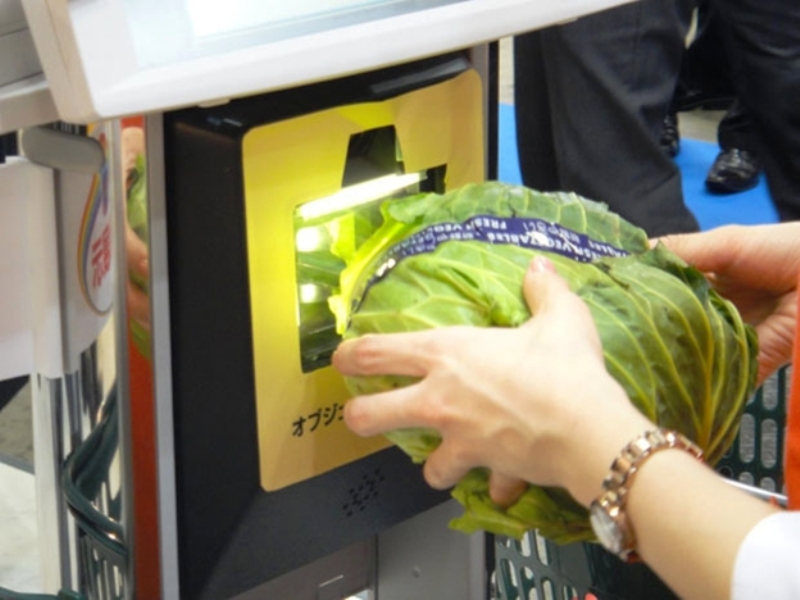
Types of reading elements of the scanner
Depending on the reading element, scanners can be divided into:
- LED
Reliable, with a long service life. Due to the absence of moving parts, they practically do not break. Differ in low cost. But, not very convenient to work with. Since reading is possible only at a short distance from the code, it is therefore necessary to bring the device close to the package. Also, LED scanners will not cope with damaged codes.
- Laser
A laser beam is used as a reading element. Such models are distinguished by good performance, are presented in a different price range. They do an excellent job of recognizing a barcode at a distance of up to 60 cm. They require careful handling, since the reading element quickly fails if dropped.
- Image
Such devices work with a small camera. The principle of operation is that the imagers first photograph the image, and then recognize and decrypt the code. They are characterized by high speed of work, they read information from great distances and at any angle.The built-in software allows you to repair damaged parts of the code using clear areas above or below the scanned area.
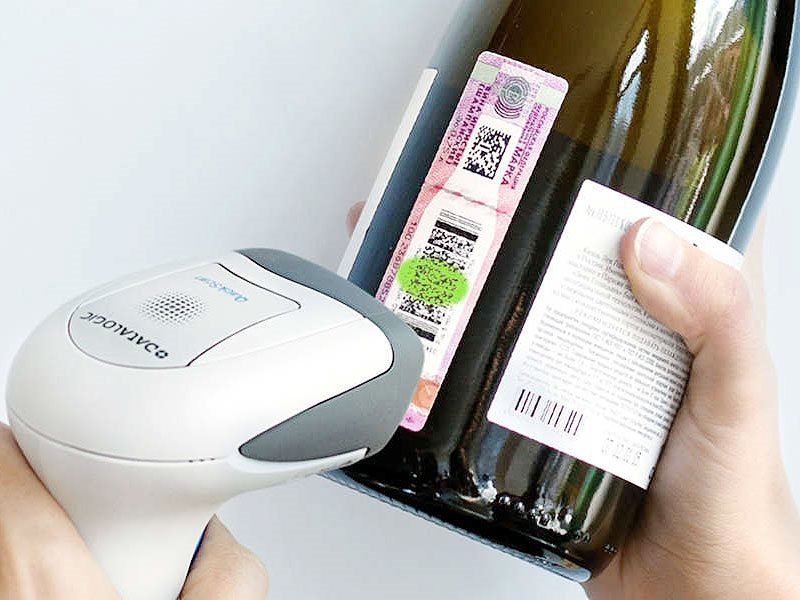
What should be a scanner for EGAIS
In accordance with the law, each outlet should be equipped with equipment for blot accounting of alcoholic products - from small convenience stores to large supermarkets. In this regard, many entrepreneurs have a question about how to automate a business in accordance with the requirements of the law.
Important: any 2D barcode scanner capable of reading the PDF417 code is suitable for working with EGAIS. There are no other requirements. It does not matter whether it is a wireless gadget or a stationary device. Therefore, it is not worth overpaying for a sticker “for EGAIS” or an indication of this item in the product passport.
How to choose
When choosing, it is worth considering the type of activity. For example, barcodes on shoes, clothes, household appliances are usually clear, without jams or scuffs. Therefore, any budget scanner will cope with their reading.
For deciphering codes on food, stationery, cosmetics and household chemicals, it is better to choose laser models. Inexpensive models can read the code with a delay, which will significantly slow down the work process (especially if inventory is taking place) or will not cope at all.
Goods with excise stamps (alcohol, cigarettes) have two-dimensional barcodes, because they contain more information. In this case, 2D scanners are needed.
Important: 2D devices can also read one-dimensional codes, so one 2D scanner is enough to automate a grocery store that has alcohol in its assortment.
To work with bulky goods (building materials, large household appliances), you will need a wireless device. After all, you can’t put, for example, a washing machine on a cash register. If you plan to use the scanner in a warehouse, then you should clarify the operating conditions. The fact is that most models of scanners are designed to work at positive temperature values, in rooms with moderate humidity.
It is also worth paying attention to the compatibility of the device with the software of the computer, POS-terminals.
The review of the best scanners presents high-quality linear barcode scanner models with low cost and good functionality, as well as devices that are suitable for working with EGAIS.
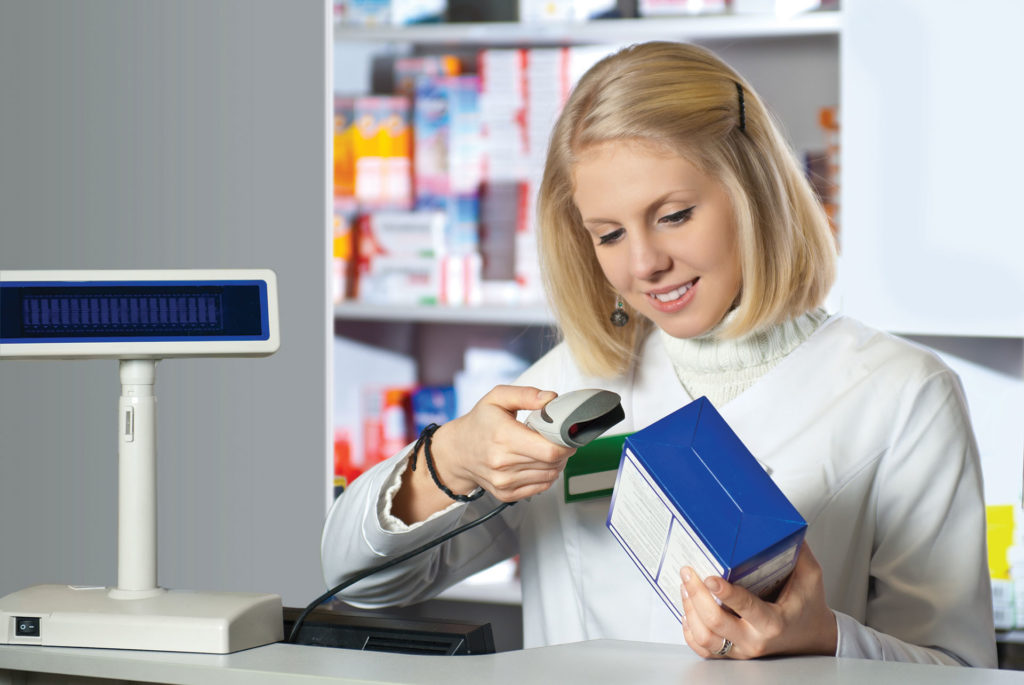
Budget linear models
Suitable for automating trade in small grocery stores, making it easier for warehouse employees, as it will be easier to track leftovers.
Newland HR1250 Anchoa
An inexpensive device that combines the advantages of laser and LED technology. Thanks to the USB interface, it can be quickly integrated into any accounting system. Equipped with a backlight, it quickly reads codes, both standard and with a high density of graphic elements. Regardless of their legibility, thanks to the image reader.
The case is sealed, made of durable plastic, withstands drops on hard surfaces.
Cost - from 1540 rubles (in the minimum configuration).
- all the necessary options at an affordable price.
- small scanning range - up to 15 cm.
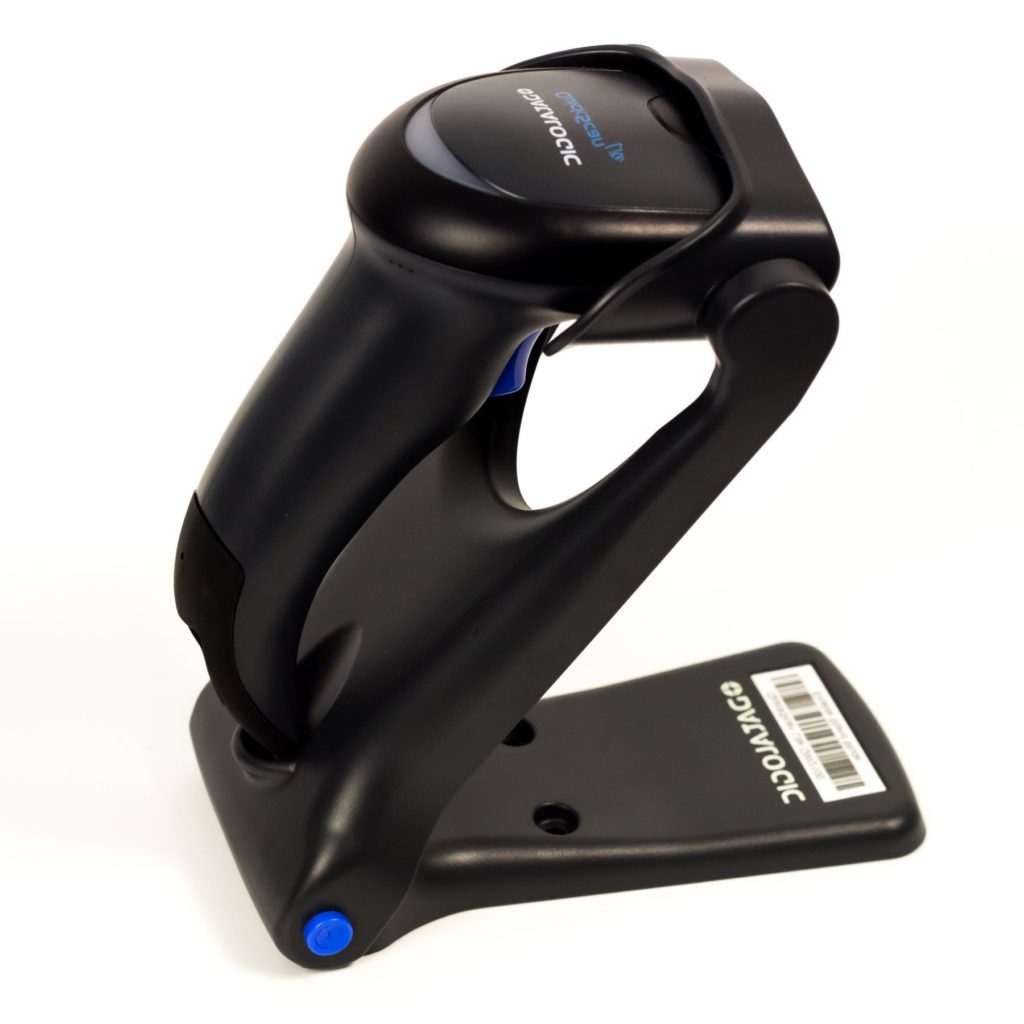
DataLogic QuickScan Lite QW2100 USB
Handheld, line scanner from an American manufacturer of devices for automating the trading process.It is intended for reading one-dimensional codes, therefore it is not suitable for EGAIS. But for small shops and warehouses, this is an excellent purchase for little money.
Easily copes with damaged, erased images, can read information from monitors of various devices.
It has 7 modes of operation, so you can adjust the scanner "for yourself". The set includes a stand with which you can use the device as a stationary scanner, or fix it on the wall, for example, in a warehouse.
The case is impact-resistant plastic. According to the manufacturer, it will withstand a fall onto a concrete floor from a distance of 1.5 m. The QuickScan name is justified. The device reads information quickly and without problems, including small barcodes.
The built-in Datalogic Green Spot feature will indicate a successful scan with a green backlight.
Supplied complete with USB cable, stand and CD with installation drivers.
The cost is from 3900 rubles.
- price-quality ratio;
- convenient to use;
- the ability to select settings;
- range and reading speed;
- possibility of integration with 1C.
- no.
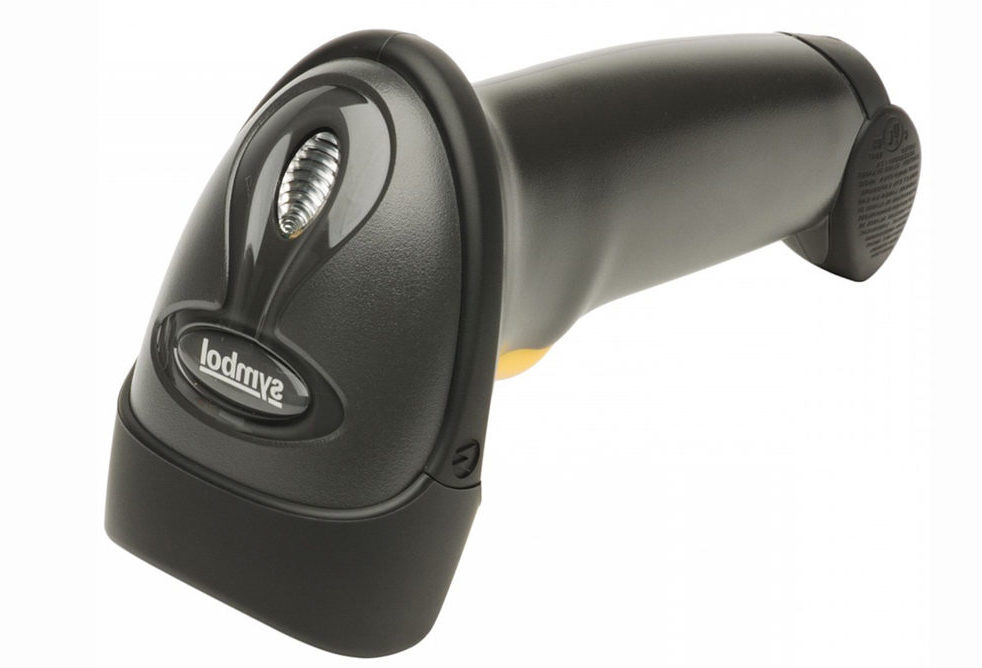
Zebra LS2208
Differs in light weight, speed of work up to 100 operations per minute. Equipped with light and sound identifiers that are triggered if the code is successfully read.
Has 2 operating modes: manual and automatic. To work in manual mode, you need to bring the device directly to the barcode. In automatic - the scanner recognizes codes that are in the area of \u200b\u200bthe reader element.
The model recognizes and decodes most codes, thanks to the support of international layouts.As for the software, the scanner is equipped with the 123Scan program (setting parameters, maintaining device usage statistics). It is possible to connect the device to a PC or integrate it into an existing program.
The cost is from 3800 rubles.
- work speed;
- the ability to work in automatic mode, which is convenient for scanning a large number of goods;
- recognizes overwritten or damaged codes;
- manufacturer's warranty - 5 years.
- a light weight;
- No
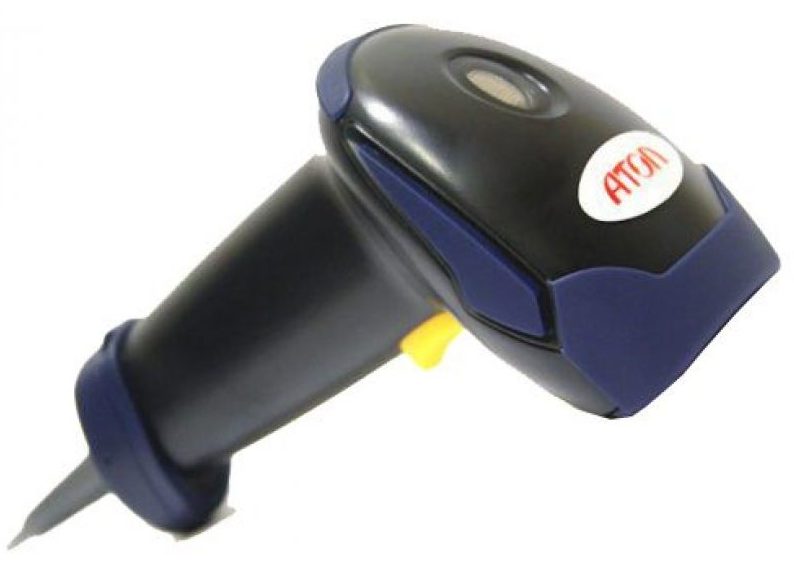
Atol SB 1101 USB
From a Russian manufacturer. Differs in simple setup, does not require installation of additional drivers when connected to a PC. The scanning range reaches 70 cm, so the device is suitable for installation at the checkout for small retail outlets. A stand is included for this.
It works at temperatures from 0 to + 40 degrees, so it is impossible to use the device in unheated rooms.
When integrating with 1C, it will take a minimum of time to set up.
Reviews about the scanner are mostly positive, but some users note that the device may “freeze”. The waiting time for reading in this case can take up to 10-15 seconds.
The cost is from 2600 rubles.
- price;
- a light weight;
- does not require installation of additional software;
- high reading range;
- large viewing angle;
- durable body.
- may "hang";
- can not be used in cold rooms with temperatures below 0.
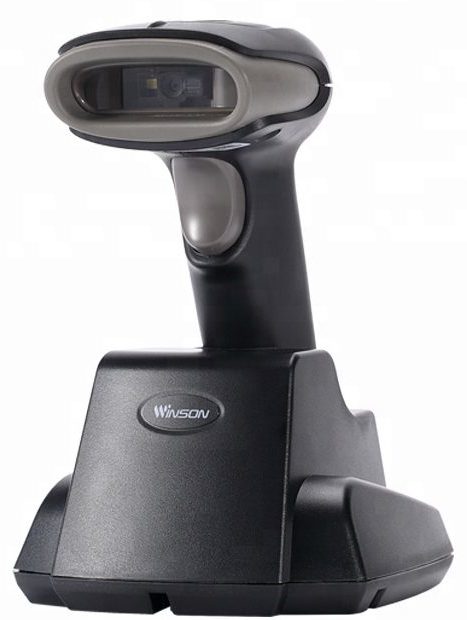
Winson WNL-6003B
Wireless model equipped with a rechargeable battery, which allows you to use the device offline. The range of information transmission via radio signal is up to 100 m from the base.Duration of work without recharging - up to 12 hours. Reading range up to 60 cm, with a minimum element size of 0.1 mm.
The temperature regime at which the scanner can be operated is from -20 to +65 degrees. That allows you to use the device in open retail outlets (in the markets), unheated warehouses and in production conditions.
The scanner supports most used barcodes: UPC E, Matrix 2 of 5, EAN-8, Code 39, UPC. Both direct transfer of information to the server and storage in memory for 4000 codes and subsequent uploading to the database are possible.
Easy setup and installation without drivers (Plug-and-Play connection), integration with 1C software.
Comes complete with stand, base station, USB cable.
The cost is from 9000 rubles.
- reliability;
- ease of installation;
- compactness;
- connection of several scanners to one station is possible;
- long battery life without recharging;
- possibility of use at negative temperature values.
- high price.
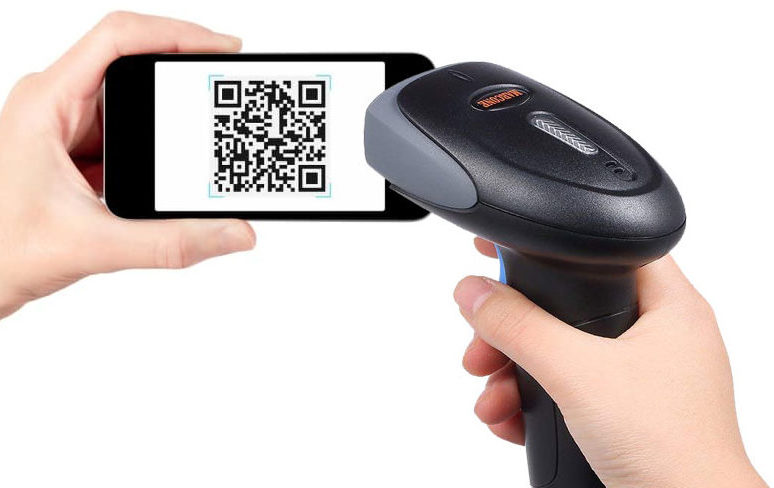
The best 2D scanners
The models presented in the rating are notable for their low price and excellent technical characteristics, they are suitable for working with EGAIS.
VMC BurstScan Lite v2
Handheld scanner capable of reading common single-line and double-line barcodes. Supports Windows, Linux, Mac OS X operating systems. Equipped with USB interface. Can be used as a stationary device (stand included). Optimized for barcode recognition Data Matrix, EGAIS.It perfectly copes with the recognition of miniature images on excise stamps, including tobacco products and medicines.
Since the company's representatives (developers and sales consultants) are located in Russia, it is possible to install additional software if necessary.
The cost is within 4000 rubles.
- acceptable price;
- reliability;
- the ability to read damaged codes;
- built-in IR counterfeit banknote recognition indicator;
- dim illumination.
- no.
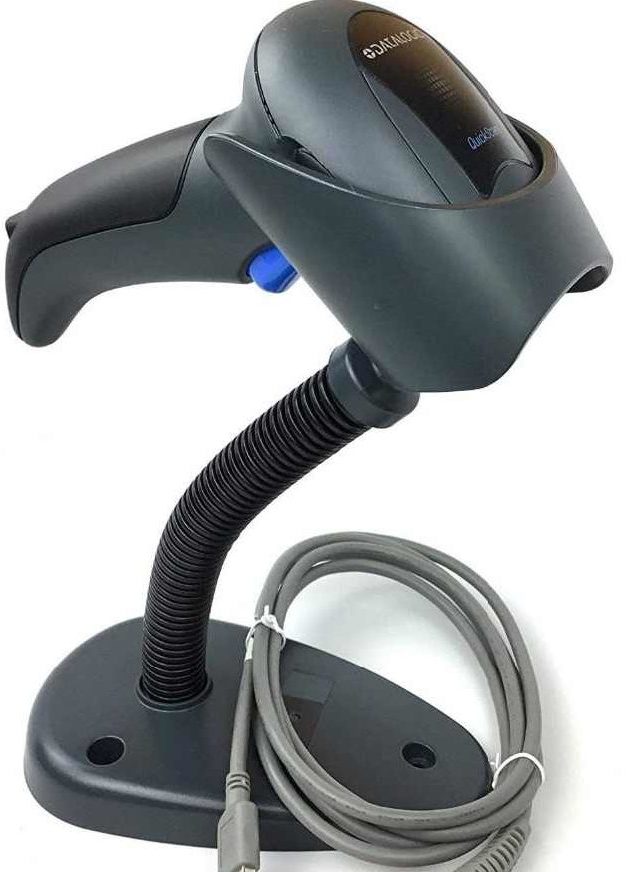
DataLogic QuickScan I QD2430 2D USB Kit
High performance handheld imager. Ergonomic design, light weight. For the convenience of the operator, it is additionally equipped with blue LED indicators, which simplifies pointing and fixing the camera on the image. It can be used both in manual and stationary version. Does not require software installation.
The cost is from 6200 rubles.
- good technical characteristics;
- ergonomic design;
- availability of additional indicators;
- built-in patented system "Green Spot", which will report a light signal on the successful reading of the code.
- switching of operating modes requires confirmation (barcode, not manual control).
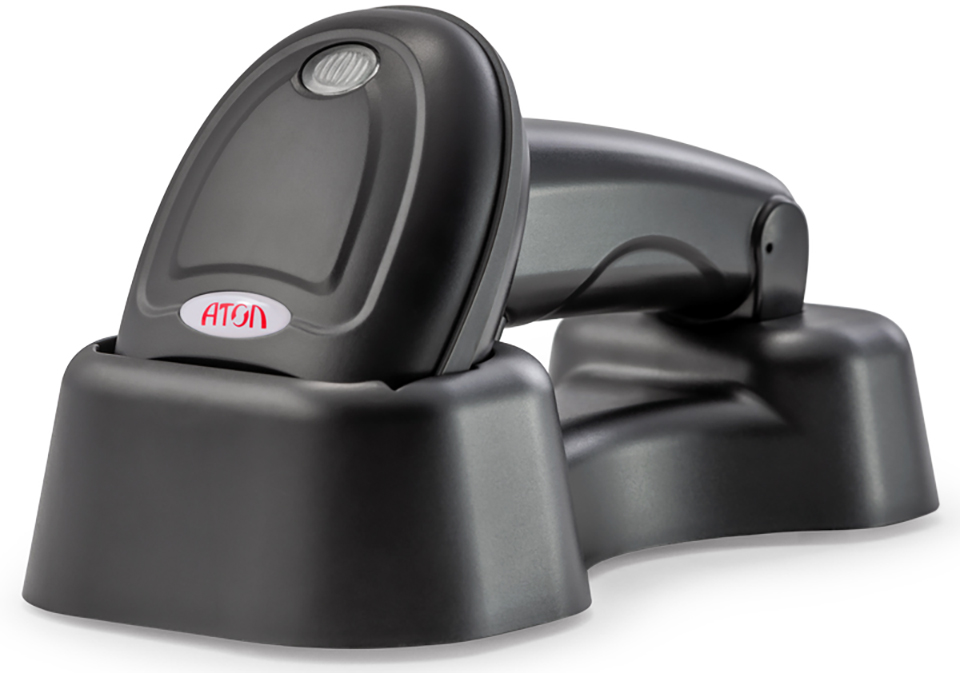
ATOL D2
Stationary device for small retail outlets with low and medium traffic. Thanks to its high resolution, it recognizes codes from any surface. The tilt angle varies up to 40 degrees. Adapted to read all existing marking systems. Withstands drops from up to 1.5m.
When connected to a computer, the drivers are installed automatically.
The cost is from 8000 rubles.
- reliability;
- convenient use.
- low performance;
- overpriced for the average.
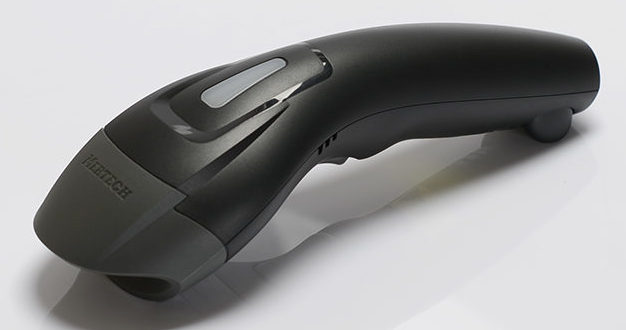
MERCURY 600 P2D USB
The most inexpensive scanner in the ranking. Compact handheld device with good technical characteristics. Recognizes codes on tobacco and alcohol products. Differs in high productivity.
Built-in memory 512 kB allows you to save and upload to the database up to 6000 codes. Ability to integrate with any software, online cash registers.
User reviews are positive, because, despite the low cost, the scanner meets the promises made by the manufacturer.
Supplied complete with USB cable and brief instructions.
The cost is 3000 rubles.
- price-quality ratio;
- high performance.
- no.
Automation of trade processes using scanners is the best solution that will speed up the work of cashiers and simplify audits. The device should be chosen based on the functionality, features of the product range.
new entries
Categories
Useful
Popular Articles
-

Top ranking of the best and cheapest scooters up to 50cc in 2022
Views: 131650 -

Rating of the best soundproofing materials for an apartment in 2022
Views: 127690 -

Rating of cheap analogues of expensive medicines for flu and colds for 2022
Views: 124518 -

The best men's sneakers in 2022
Views: 124032 -

The Best Complex Vitamins in 2022
Views: 121939 -

Top ranking of the best smartwatches 2022 - price-quality ratio
Views: 114979 -

The best paint for gray hair - top rating 2022
Views: 113394 -

Ranking of the best wood paints for interior work in 2022
Views: 110318 -

Rating of the best spinning reels in 2022
Views: 105328 -

Ranking of the best sex dolls for men for 2022
Views: 104365 -

Ranking of the best action cameras from China in 2022
Views: 102215 -

The most effective calcium preparations for adults and children in 2022
Views: 102011


